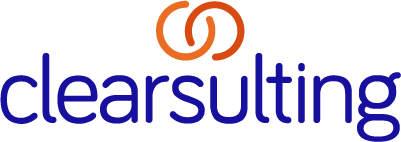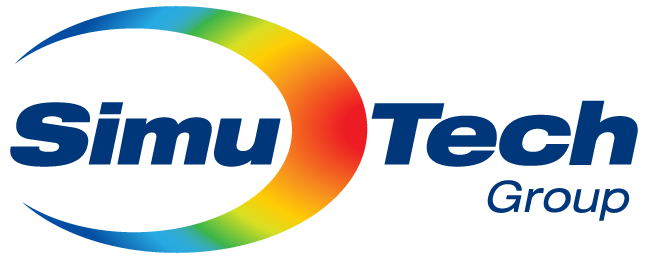Cloud accounting software operates similarly to traditional on-premises or self-install accounting software. However, in this case, the accounting software is hosted on remote servers, adopting a Software as a Service (SaaS) business model. Data is sent into “the cloud,” processed, and then returned to the user. All application functions occur off-site, eliminating the need for installation and maintenance on individual desktop computers.
Get timely, accurate, and powerful financial planning in a unified view.
In cloud computing, users access software applications remotely through the Internet or another network via a cloud application service provider. This setup allows businesses to enjoy the flexibility of accessing accounting data from various locations and devices with an internet connection.
Cloud accounting solutions extend accessibility to employees in different departments, remote locations, or branch offices, enabling them to access the same data and software version. This promotes collaborative work and efficient information sharing.
The accessibility and collaborative capabilities of cloud accounting have paved the way for the introduction of cloud finance solutions.
In today’s rapidly evolving business landscape, cloud finance solutions have emerged as indispensable tools for organizations seeking to optimize their financial operations. Gone are the days of questioning “why cloud?”–now, the focus is on choosing the right cloud platform and realizing the missed opportunities of not adopting it sooner. This shift is evident across industries, with small and medium-sized enterprises allocating a significant portion of their IT budgets to cloud solutions.
Transitioning to a cloud-based finance system may seem daunting, but the benefits far outweigh the challenges. While the implementation process shares similarities with traditional on-premise setups, the advantages of cloud-based solutions are exponential. With careful planning and execution, cloud finance implementations offer unique advantages driven by fundamental architectural differences. These differences underscore the core reasons for embracing the cloud, making them essential considerations for businesses evaluating finance solutions.
Key features of cloud accounting include:
Cloud accounting offers flexibility, real-time updates, scalability, and cost efficiency compared to traditional accounting software. Certinia Accounting leverages the familiar and trusted Salesforce platform, providing businesses with a seamless transition to an easily accessible cloud platform. This integration enhances business processes and reporting, allowing functionalities like creating sales orders or invoices directly from Salesforce opportunities. By streamlining the opportunity-to-cash process, Certinia Accounting eliminates manual activities and provides a comprehensive transactional record.
Moreover, cloud-based platforms go beyond convenience–they elevate the customer experience. CFOs and finance leaders recognize the value of working on the same platform as their colleagues, fostering collaboration and alignment across departments. Certinia Accounting, seamlessly integrated with Salesforce CRM, offers a unified environment for sales, services, and finance teams, ensuring a consistent view of critical customer data and processes.
Looking ahead, cloud accounting represents the future of finance. Certinia Accounting leverages the power and flexibility of the Salesforce platform to deliver a sophisticated yet user-friendly solution. From personalized user interfaces to real-time data access, Certinia Accounting caters to organizations of all sizes, from startups to multinational corporations. With enhanced security measures and reduced maintenance, businesses can experience significant cost savings and streamlined processes.
In conclusion, cloud finance isn’t just a trend–it’s a strategic imperative for businesses seeking to thrive in today’s digital age. With Certinia’s leading cloud finance solutions, organizations can unlock new levels of efficiency, collaboration, and profitability, paving the way for sustained success in the ever-evolving financial landscape. By choosing a platform like Salesforce, businesses can further enhance these benefits, providing a familiar and trusted environment for efficient accounting operations. Cloud accounting, integrated with Salesforce, offers a comprehensive solution that empowers businesses to excel in their financial management endeavors.
See how Certinia solutions transform and optimize operations.

With Certinia solutions, we can ensure all consulting-related information seamlessly flows from sales to services to invoicing, paving the way for our continued growth. We now have one source of truth, faster invoicing and faster month-end closes.
Monica Engelhardt, CFO, Clearsulting


Even though we’re a small company, Certinia worked closely with us to help define our key processes, enabling us to implement the right tool to fit our growing company. Plus, because the Certinia solution is so flexible, it will support our changing needs.
Ida Pai, CFO, DeepRoot


Revenue forecasting is one of the biggest things that we do. Pulling data from our opportunities in sales and analyzing what the forecast is going to look like for revenue over the next 12 months is hugely critical for us.
Sean McDermott, CEO, Windward


After moving off QuickBooks and onto Certinia, we are able to do reporting for our combined companies all as one. Certinia was the perfect solution for our Salesforce-centric organization.
Jim Radochia, CTO, SimuTech


Knowing it was all going to be in one area where I could see from quoting through the CRM and onto cash collection, all in one place on the Salesforce platform, I was sold.
Sara Curry, CFO & Director of Operations, Interra Global
